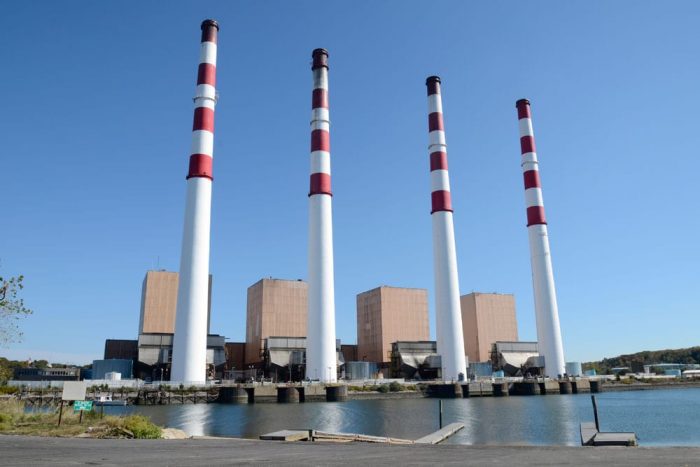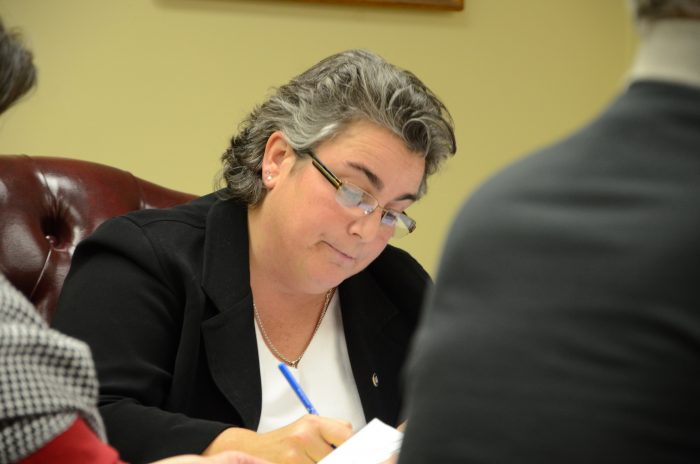By Aidan Johnson
The Biden administration and the U.S. Environmental Protection Agency announced new proposed regulations on May 11 that would require most power plants fired by fossil fuels to cut their greenhouse gas emissions by 90 percent between 2035 and 2040. Plants that do not meet these requirements may have to close down entirely, according to the new plan.
Starting in 2030, the EPA guidelines would generally require more CO2 emissions controls for power plants that operate more frequently, phasing increasingly stringent CO2 requirements over time, an EPA statement said.
If passed, the new requirements would likely impact the Port Jefferson and Northport power stations, both fired by natural gas.
The EPA projects the carbon reductions under the new guidelines would help avoid over 600 million metric tons of CO2 released into the atmosphere from 2028 to 2042, “along with tens of thousands of tons of nitrogen oxides, sulfur dioxide, and fine particulate matter,” the statement reads.
This new proposal comes over four years after the Long Island Power Authority, which buys all of the Port Jefferson Power Station’s power, settled its tax lawsuit with the Town of Brookhaven and the Village of Port Jefferson.
“The terms of settlement shelter us from having to pay back taxes (taxes collected during the 6-year-long court battle) while also providing a glide path moving forward over the next 8 years, during which the 50% reduction of tax revenue can be absorbed,” Village of Port Jefferson Mayor Margot Garant said in a 2019 statement.
The new EPA standards represent a step toward alleviating the climate crisis, according to the Biden administration. Their impact, however, will likely be felt locally given that a sizable portion of PJV’s budget is subsidized by the plant. This applies to other local institutions, such as the Port Jefferson Fire Department and school district.
Bruce Miller, former Port Jefferson Village trustee, said in an interview that it is technologically feasible to remove carbon dioxide and other polluting gasses from the smoke stacks. He also maintains that the possibility of using hydrogen, a clean fuel source, remains an option.
“The thing that I’m talking to National Grid [the owner of the plant] about is hydrogen,” Miller said. “Will they be thinking in terms of possibly a combined cycle plant in Port Jefferson? That would be our hope.”
These talks are still preliminary as the proposed regulations are still subject to a public comment period. “Whether National Grid and LIPA would want to make the investment to put some hydrogen-powered combined cycle plants — redo the Port Jefferson plant — is a huge question mark,” Miller indicated. “I don’t have an answer for that or even a projection.”
The former trustee added that the impact to local budgets could be “substantial,” noting, “It’s going to be a major adjustment if that plant goes offline.”
While the long-term plans for the plant remain unknown, Garant maintained that the village’s finances would not be hit all at once if the plant were to shutter.
“The community wouldn’t be on a cliff,” she said in a phone interview. “The norm is like another 10-year glide path to give you a chance to settle into another loss of revenue.”
While the potential loss of public revenue remains a critical policy concern for local officials, the impact that climate change has had on the village cannot be ignored either. The past few years have brought both droughts and flooding, likely the consequence of intensifying storms and rising tides due to climate change.
“Projections for sea-level rise over the coming decades are nothing short of staggering,” said trustee Rebecca Kassay, Port Jeff’s sustainability commissioner, in a statement. “If the global community does not work together — from individuals to villages to states to nations and every agency in between — and climate change is not slowed from its current projections, [the National Oceanic and Atmospheric Administration] confidently forecasts that Port Jefferson Harbor will engulf Port Jefferson Village’s downtown Main Street within a century’s time.”
The EPA will host virtual trainings on June 6 and 7 to provide information about the proposed regulations.









